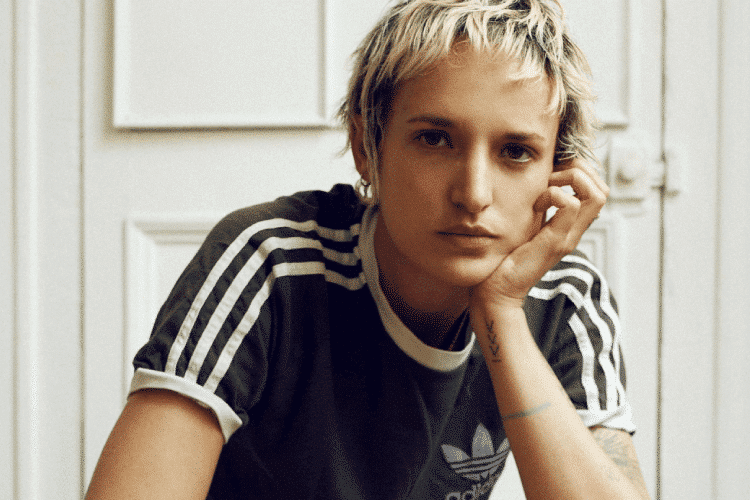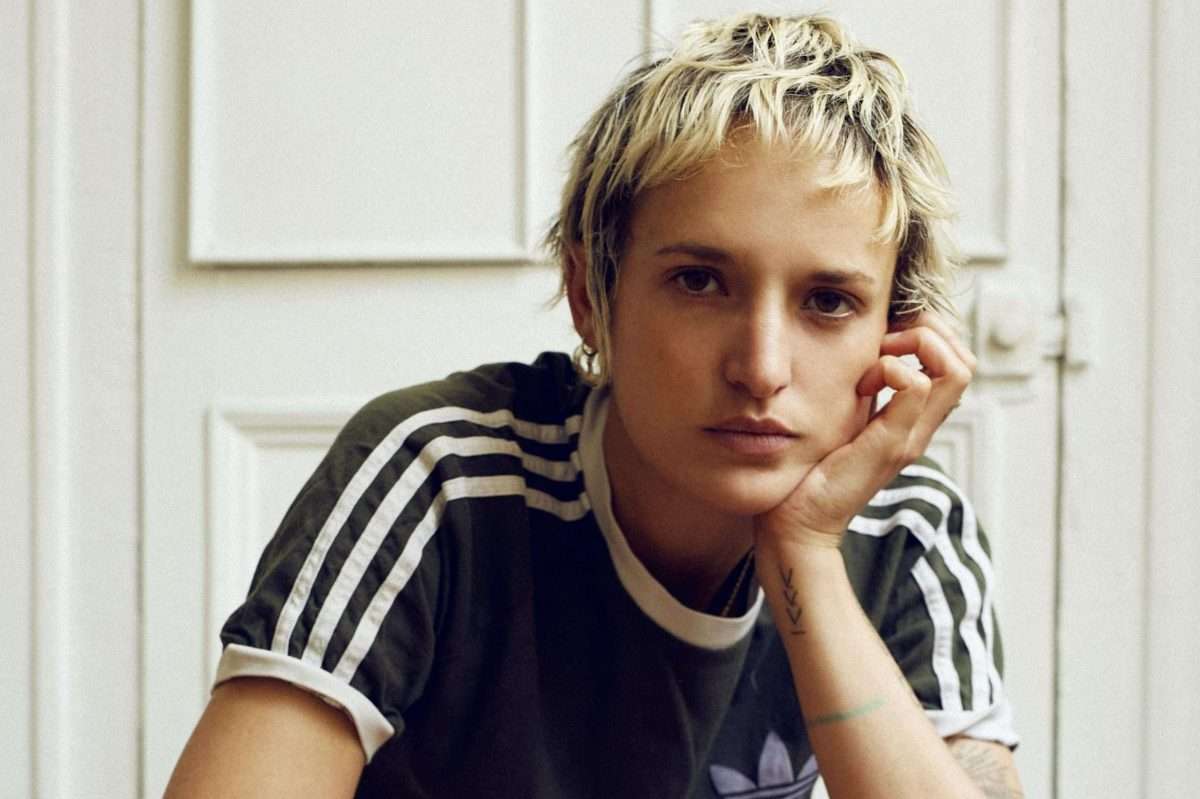

The Palme d’Or winning-drama stars her as Alexia, a dancer with strange sexual desires and a tendency to violence. It’s a complex part. As she forms a bond with a grieving firefighter, Rousselle is able to channel humanity and hypnotic physicality into her role – the outcome of which is her commitment to not only playing Alexia, but becoming her. This is a performance which forced Rousselle to embrace her character’s dark persona, and not without some challenges, as she explains to A Rabbit’s Foot below.
CC: You’ve noted that you have nothing in common with Alexia. Can you tell me where you found some common ground with a serial killing dancer who loves cars?
AR: The only common ground that I found with her was probably her determination, her ability to make what she needs to be happening happen. But I’m not sure an actor must necessarily find a common ground with their character. I feel like it’s more about understanding where they come from, where their humanity lies, and developing some sort of empathy and love towards them, even the worst of them, because at the end of the day we’ve all been through hardships. We just find very different ways to cope with them.
CC: You have experience in the fashion industry. It’s a visual film, with beautiful costumes and aesthetics. How do you think fashion has helped you express yourself?
AR: My experience in fashion taught me that I could look good in a picture or on film and how to grab the light, and that gives you a bit of confidence on set, but not necessarily in life. For this role, my experience might have helped in the first scene but I was too busy trying to do well as an actress to even start thinking about the way I looked.
CC: You have an editorial background, too. How did Titane mirror, or express the messages or themes of gender of feminism that you write about?
AR: I honestly don’t think this movie is about gender. At all. (Alexia changes into a guy out of survival, not out of an identity issue). I don’t think it is a feminist movie either. But it does talk about acceptance and unconditional love, and that’s a message that tackles all of those topics.
CC: It was a very physical, intense role. Did you have to prepare in any way?
AR: Yes, two months of intense muscle training, dance training and stunt training, as well as an extremely strict diet.
CC: Ducournau described Titane as an attempt to talk about love without words. Can you expand on this, from your point of view?
AR: In the case of Titane, the two characters have to love each other, because they are literally all they have in the world and they each respond to the other person’s needs. So yes, in that case, in this kind of love (which in my opinion would rather be called co-dependency), no words are needed, and that’s the beauty of it because it makes the persons involved feel as though they are enough for each other, and that’s precious. As to love as I understand it, I feel like it definitely needs words. Language to me is a very crucial vessel for love to befall.
CC: It’s said that characters stay with the actor long after the role. Has Alexia changed you in any way – was it hard to leave her behind?
AR: I was actually glad to leave her behind! My body and mind suffered as much as she did for four months. But she kind of insisted on staying with me for a bit. As I was grateful to have crossed paths with her, I accepted it and she slowly faded away so we can part ways.
CC: In an industry obsessed with blockbuster superhero films, I’d like to know what sort of reaction you expected when it was screened. Do you remember the first screening, and the thoughts of emotions you had?
AR: I didn’t expect anything really, I was mostly relieved that it was finally out and not ours, our team’s, anymore but the public’s. And yes, I do remember the first screening, of course! It was in a small cinema in Paris, a few weeks before the big first screening in Cannes. I remember not really watching the movie but rather seeing every scene that got cut, memories on set, and thinking of the amazing team we had. I came out of the room quite shaken, yet relieved, thinking that for a first ever feature film, I’d done an honest job…Because I was not really expecting anything, I was just very very happy about its later success.
CC: You have your eyes set on the U.S. and living in New York. What about the city do you love most, and what sort of projects or American filmmakers would you like to work with?
AR: I love New York, the straight-forwardness of the city and its people, Central Park on a very early Sunday morning, walking everywhere listening to local bands, going to amazing shows, running across the bridges, the intensity of the seasons and the vibrant colours of the fall…I even like the noise of New York, the sound and the fury, the energy and the brutality. It truly is a very romantically violent (yet way too expensive) city to live in.
I wish to work with directors who have a vision, a genuine approach to the stories they are telling, and a lot of taste and exigency, of course. My dream is to work with David Fincher, but also and above all to be cast for projects that make sense to me and would make me work alongside actresses and actors I admire the most. Also, not gonna lie, being in The Batman as Poison Ivy or Catwoman is a childhood dream and dotty adult goal of mine.
CC: You live a polymath life. Where do you seek inspiration and happiness in the day-to-day?
AR: Inspiration usually comes from pain and sorrow, anger and frustration too. Life tends to carry these feelings enough by itself that I don’t need to create drama anymore, and I learnt how to accept it when it comes in its natural form.
I used to be a very dark person, but as I understood quite recently that chaos was the obvious easy way to go and happiness an actual choice one makes for oneself, I genuinely decided on seeing the glass half full and became very attached to my well being and peace of mind. Meditation, yoga, my little dog, a very sane partner, close, solid friends, understanding I have no control over things apart from the way I react to them, and counting my blessings on a daily basis have been key.





